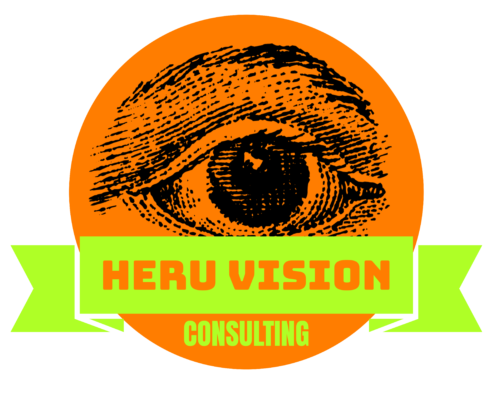In your indie creative business, your artistry is your passion. Whether you’re a painter, writer, musician, designer, or any other type of independent artist or entrepreneur, your unique skills and vision are the heart of your business. But just like a masterpiece needs the right canvas and frame, your creative business needs a solid structure to thrive. Choosing the right legal structure is a crucial step that can significantly impact your finances, liability, and overall success.
This article will guide you through the different business structures available, highlighting their implications for small business development, particularly for indie creatives like yourself.
Why Your Business Structure Matters
Your business structure determines how you’ll handle several key aspects of your operations:
- Liability: This defines your personal responsibility for business debts and lawsuits.
- Taxes: How your business income is taxed and how you file your taxes.
- Paperwork and compliance: The administrative requirements for maintaining your business.
- Funding opportunities: Your eligibility for loans, grants, and investments.
- Flexibility and control: Your decision-making power and ability to adapt your business.
Common Business Structures for Indie Creatives
- Sole Proprietorship
- Definition: The simplest form, where the business and the individual are legally considered the same.
- Pros: Easy and inexpensive to set up, minimal paperwork, complete control, and profits are taxed directly as personal income.
- Cons: Unlimited personal liability for business debts, potential difficulty in raising capital, and may appear less professional to some clients.
- Best for: Indie creatives just starting, operating on a small scale, and with minimal risk or liability. Examples: A freelance writer working from home, an artist selling artwork online, a musician offering private lessons.
- Partnership
- Definition: Two or more individuals agree to share in the profits or losses of a business.
- Pros: Shared resources, skills, and responsibilities, relatively easy to establish, and profits are taxed at the individual partner’s income tax rate.
- Cons: Potential for disagreements among partners, unlimited liability for all partners (except in limited partnerships), and more complex decision-making.
- Best for: Creative collaborations, such as a design duo, a band, or a group of artists running a shared studio.
- Limited Liability Company (LLC)
- Definition: A hybrid structure combining the simplicity of a sole proprietorship/partnership with the limited liability of a corporation.
- Pros: Limited liability protection for personal assets, flexible taxation options (can be taxed as a sole proprietorship, partnership, or corporation), and less stringent administrative requirements than a corporation.
- Cons: More complex to set up than a sole proprietorship, may be subject to higher self-employment taxes, and varies in regulations from state to state.
- Best for: Growing creative businesses, those with significant risks or liabilities, and creatives who want a balance of legal protection and flexibility. Examples: A graphic designer with multiple employees, a photographer with expensive equipment, an online store selling handmade goods.
- S Corporation (S Corp)
- Definition: A corporation that passes its income through to its shareholders, avoiding double taxation.
- Pros: Limited liability protection, potential tax benefits by allowing you to pay yourself a salary and take the remaining profits as dividends (which are often taxed at a lower rate), and can enhance credibility with investors.
- Cons: Stricter operational requirements, limited to a maximum of 100 shareholders, and can be more complex to manage.
- Best for: Profitable creative businesses with significant income, those seeking to attract investors, and businesses with employees. Examples: A successful design agency, a publishing house, a film production company.
Choosing the Right Structure for Your Creative Business
Selecting the optimal structure depends on various factors:
- Your business activities: The nature of your creative work and the level of risk involved.
- Your financial situation: Your current income, expenses, and projected growth.
- Your long-term goals: Your vision for the future of your business and its expansion plans.
- Your personal preferences: Your comfort level with administrative tasks and legal complexities.
Tips for Indie Creatives
- Consult with professionals: Seek advice from an accountant, attorney, or business advisor specializing in working with creative entrepreneurs.
- Research your state’s regulations: Business structure requirements and regulations vary by state.
- Consider liability insurance: Regardless of your chosen structure, liability insurance provides an extra layer of protection.
- Review and adapt: As your business evolves, reassess your structure to ensure it still aligns with your needs.
Beyond Structure: Supporting Your Creative Business Development
While your business structure provides a legal and financial framework, other factors are essential for your growth:
- Build a strong brand: Develop a unique identity that resonates with your target audience.
- Market your services effectively: Utilize online platforms, social media, and networking to reach potential clients.
- Manage your finances wisely: Track income and expenses, budget effectively, and plan for taxes.
- Protect your intellectual property: Copyright your work, register trademarks, and safeguard your creative assets.
- Embrace continuous learning: Stay updated on industry trends, new technologies, and business strategies.
Conclusion
The right business structure is a foundational step for your creative business. It’s an investment in your future, providing stability, protection, and room for growth. By understanding the options and considering your unique needs, you can lay the groundwork for a successful and fulfilling creative career. Remember, your artistry is your calling card, but a solid business structure is the frame that supports your masterpiece.


yeah I’ve been researching and the trending topic is for people to create LLCs, but I think reading this article I have a better understanding and can move forward. I think the best business structure for my small business would be an S-corp because I also work full time.
We are a group of volunteers and opening a new scheme in our community. Your website offered us with valuable info to work on. You have done a formidable job and our entire community will be grateful to you.
I have learn some good stuff here. Certainly worth bookmarking for revisiting. I surprise how much attempt you place to make any such great informative site.
Thank you so much and I love that we can be of help.
I am pleased that I discovered this blog, precisely the right info that I was looking for! .
Hmm is anyone else having problems with the pictures on this blog loading? I’m trying to find out if its a problem on my end or if it’s the blog. Any feedback would be greatly appreciated.